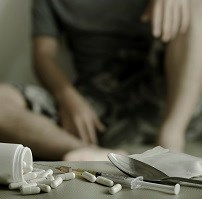National Institute for Health and Clinical Excellence (NICE)
|
|
New NICE guidance on dual diagnosis is 'desperately needed'
NICE has published new guidance for the management of coexisting severe mental illness and substance misuse - often termed 'dual diagnosis'.

Professor Alan Maryon-Davis, chair of the guideline committee, reflects upon the difficulties people with dual diagnosis can experience, and how he hopes the guidance will help them:
A decade ago, I was the director of public health for a deprived inner-city London borough. Trying to help people with dual diagnosis was a great challenge.
The Department of Health had a vision for how services and care could be delivered, but I could see their advice was not being followed. And these vulnerable people were being badly let down.
Today, the picture is the same. In fact, resources are tighter and services are being placed under an increasing amount of pressure.
People with dual diagnosis almost always have multiple needs – often with physical health and social issues as well as their dual mental health and substance problem. They are often unemployed or struggling to hold onto a job. They may be in debt, homeless or poorly housed. They could even be in an abusive relationship.
To add to their woes, they are also more likely to be stereotyped and stigmatised. They are often regarded as unreliable, feckless, difficult to engage, aggressive or abusive.
As a result, they tend to get shunted around the various services they need support from with no-one wanting to take responsibility for them. This can all too easily lead to a downward spiral and sooner or later a crisis – perhaps forcing them into A&E, or on the streets. They may even find themselves in the magistrate’s court.
This is why our NICE guideline is so desperately needed. The committee and I have pored through exhaustive literature reviews on what works best, conducted consultations on the issues and solutions, and received specialist input from front-line experts.
We have made several recommendations that I think could have a real impact, but I wanted to take this opportunity to highlight two main messages...
First, there has to be much wider recognition that this group of people, despite their complexities, have as much right to dedicated care and support as anyone else. They should not be turned away or left to flounder. Every effort should be made to help them benefit from the services they so badly need. Crucial to this is a non-judgmental, empathetic approach and the building up of mutual respect and trust.
And secondly, good communication is key! Staff working in mental health, substance misuse, primary care, social care, housing, employment, benefits, criminal justice and the voluntary sector need to have strong leadership to ensure that they are all working together as best they can. We recommend that this can be best achieved by having a dedicated care coordinators.
I am so pleased to see the final NICE guideline published today. Now it’s up to all concerned to really commit to it and make it happen. Otherwise, as I learned a decade ago, very little will change.


